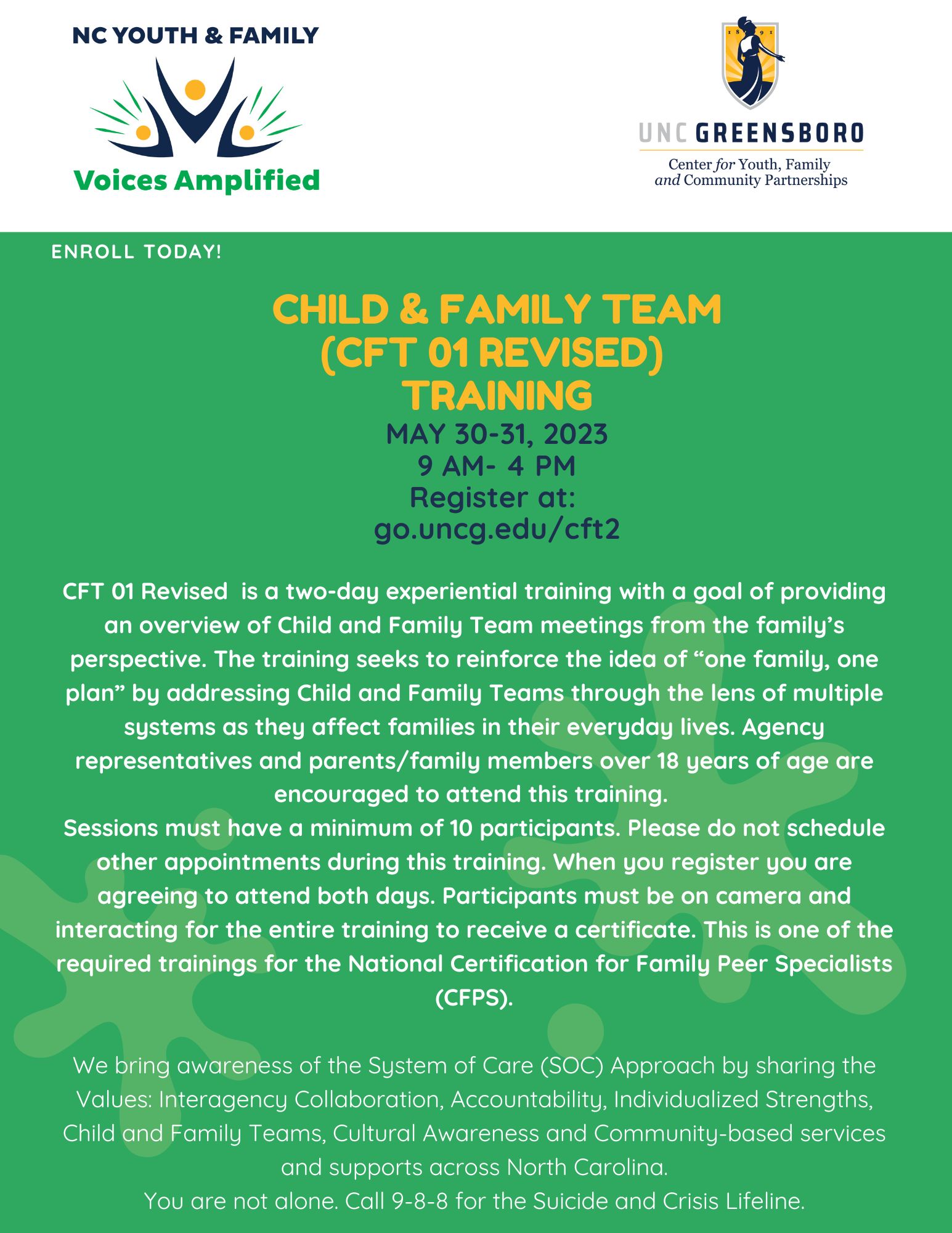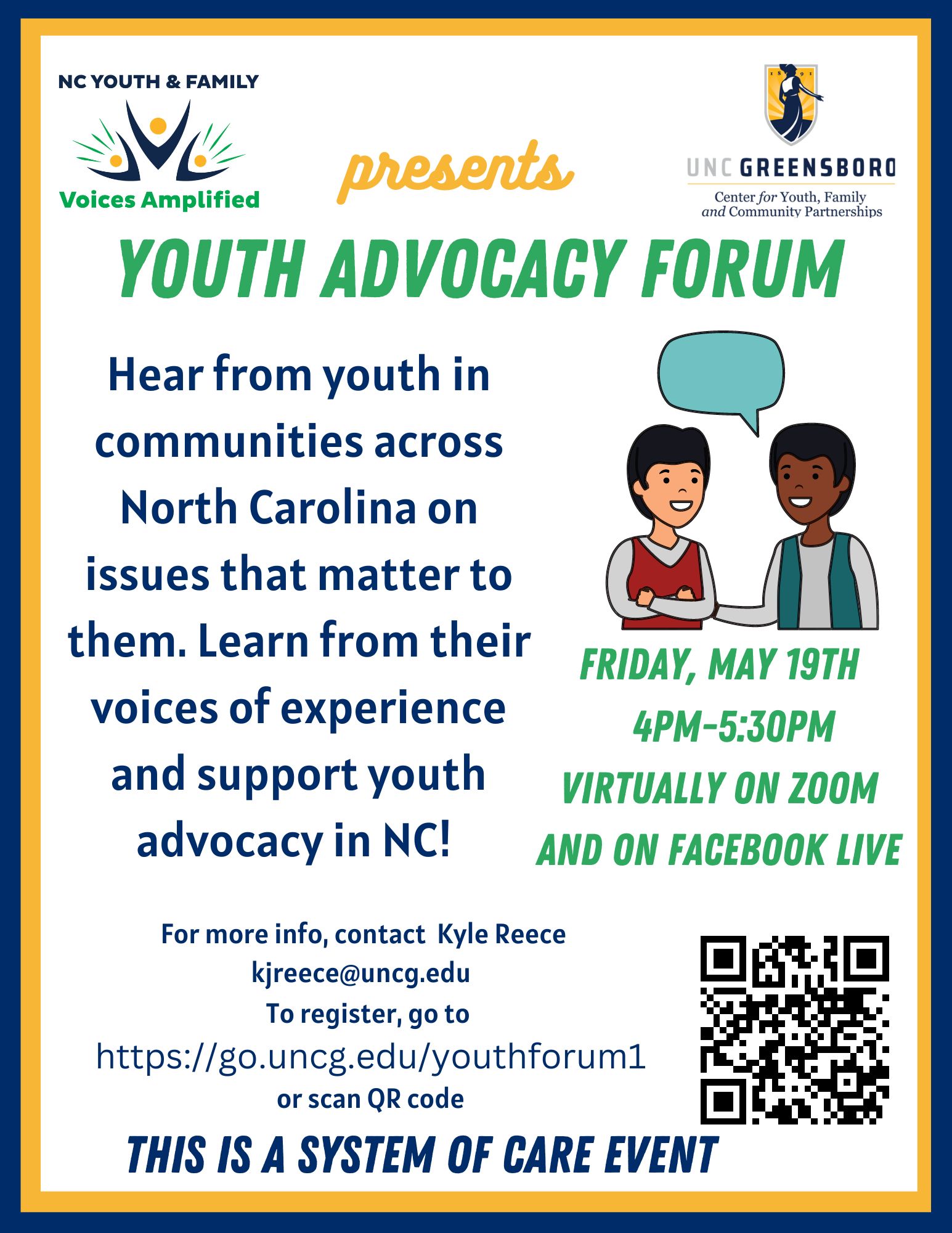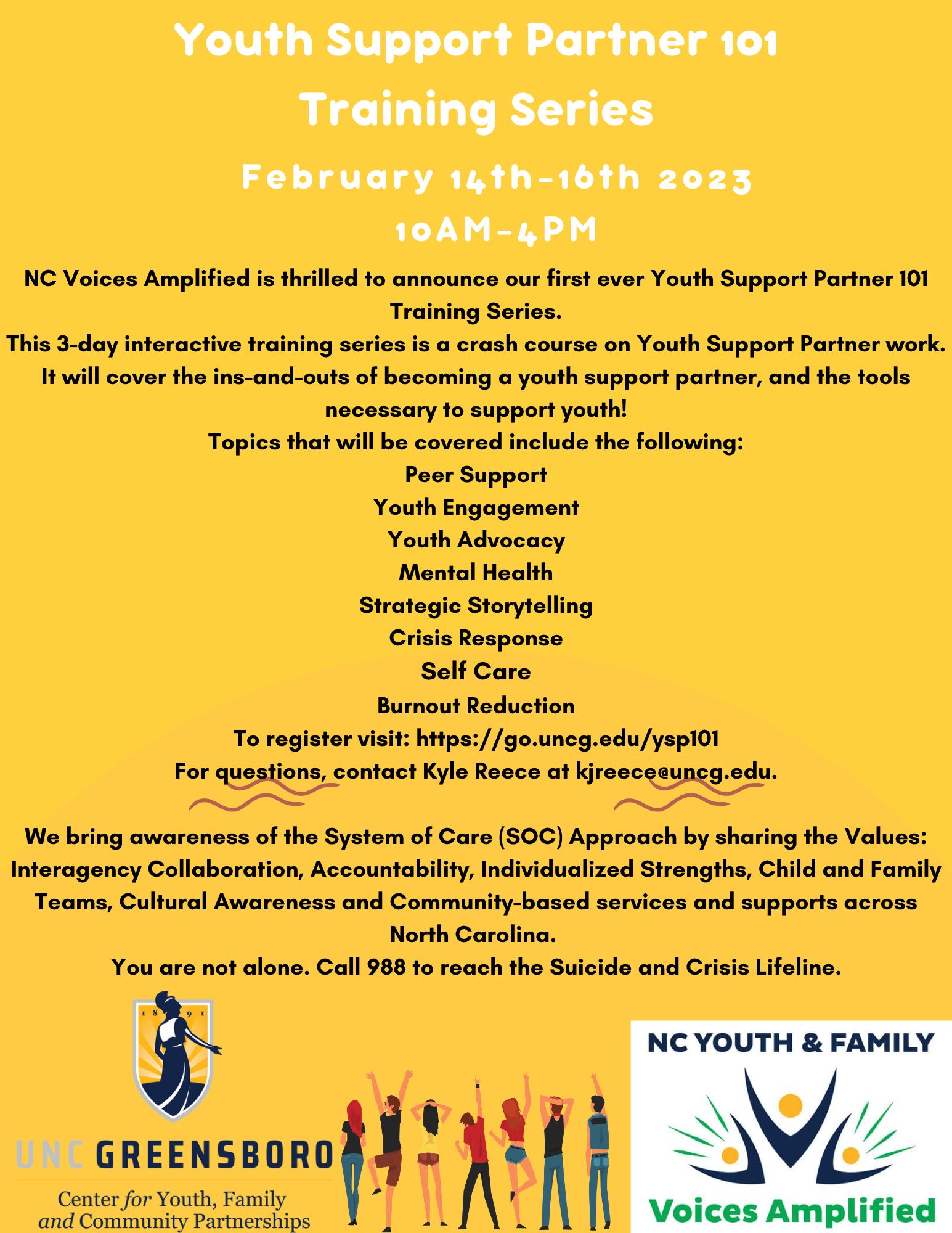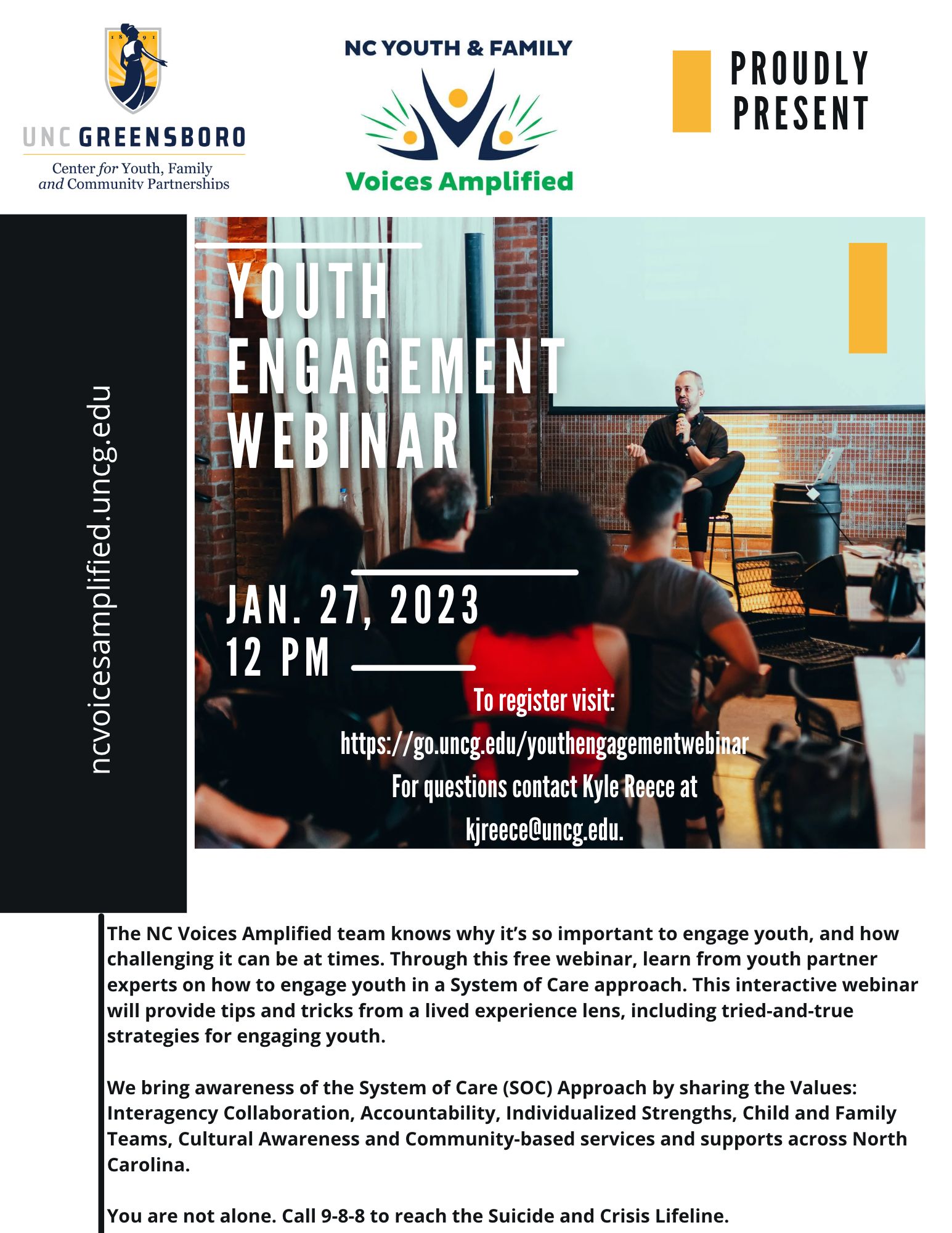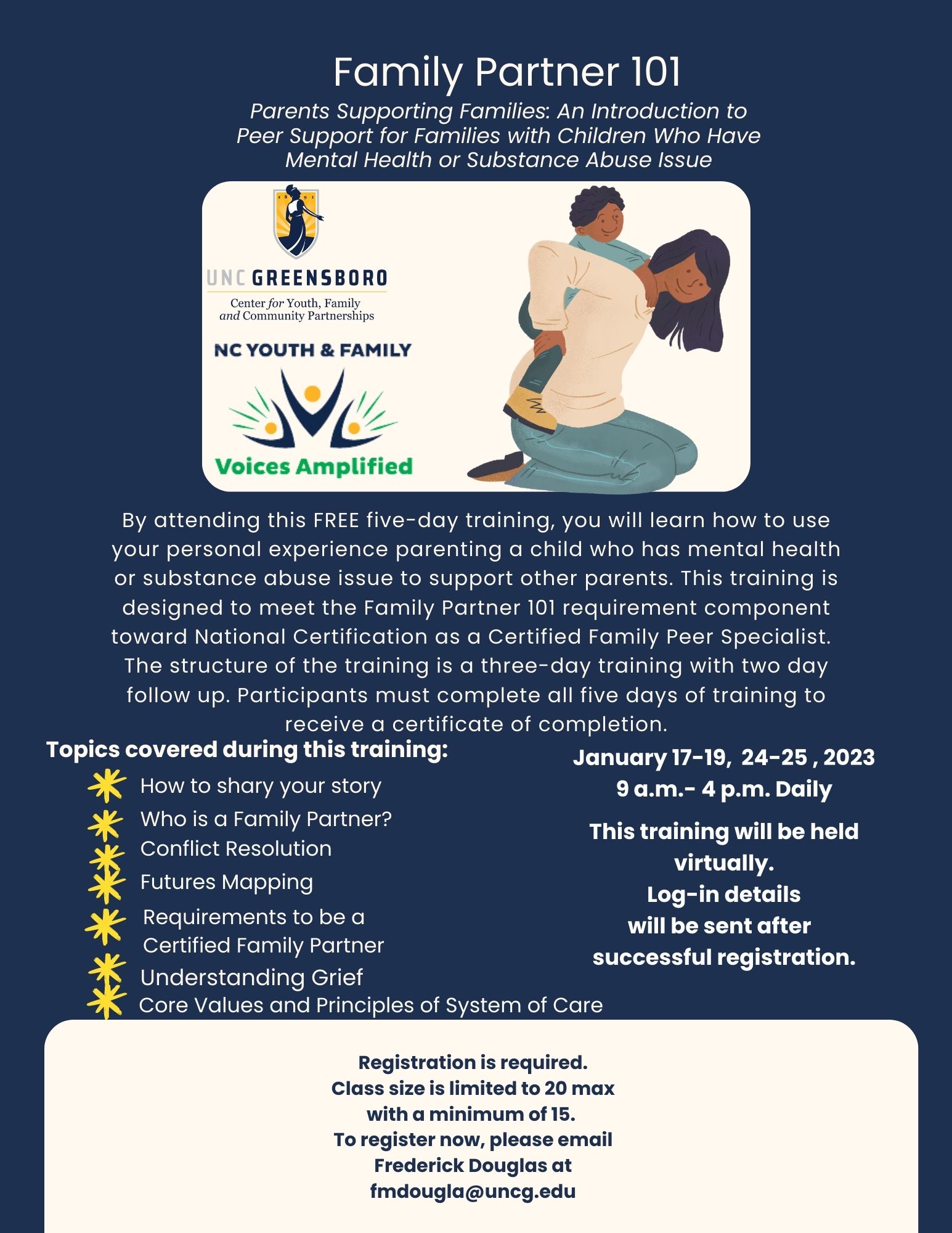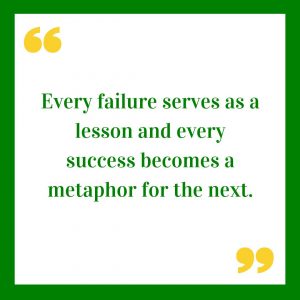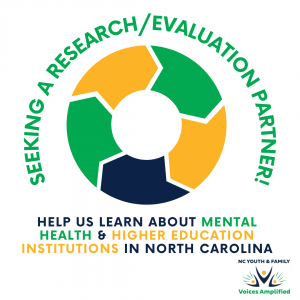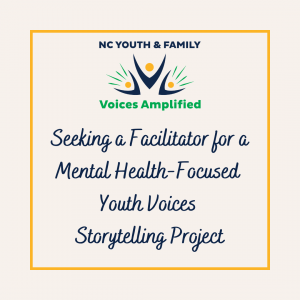
Call for Proposals: Seeking a Facilitator for a Mental Health-Focused Youth Voices Storytelling Project
NC Youth & Family Voices Amplified Program
UNC Greensboro Center for Youth, Family, and Community Partnerships
The mission of NC Youth & Family Voices Amplified is to amplify the voice of NC’s youth and families in systems and services that support their mental health and well-being. We do this through education, community partnerships, and support to enhance family-driven and youth-led care. To learn more about NC Voices Amplified, please visit https://ncvoicesamplified.uncg.edu/.
NC Voices Amplified is housed within the UNCG Center for Youth, Family, and Community Partnerships, and it is supported by a contract with the NC Department of Health and Human Services Division of Child and Family Well-Being.
This year, as part of our strategic capacity-building activities related to Youth Peer Support in North Carolina, we will conduct a statewide Youth Voices Storytelling Project that will involve a creative (likely arts-based) approach to providing forums for Youth to share their experiences related to mental and behavioral health.
The impact of this project will be measured by documenting the number of individuals in the community who are impacted (e.g., by tracking social media and/or website analytics and/or by tracking attendance at any in-person events or forums) and by seeking evaluative feedback from the Youth who participate and share their experiences through the project.
Requested facilitation services: We are seeking a dynamic facilitator (which could be an individual, team, or organization) to work with NC Voices Amplified staff to provide leadership, vision, and direct program development and implementation for the statewide Youth Voices Storytelling Project. At the present time, the specific plans for this project are still to be determined, and we anticipate that the facilitator will tailor the project to their unique talents and artistic/creative medium(s) and platforms.
Project budget: The budget for this project is $20,000. The facilitator will be contracted with UNCG following UNCG’s contracting processes and policies prior to the project’s start date.
Project timeline: This project must be completed by June 30, 2023.
Application process: We invite interested prospective facilitators to bring creativity to developing a brief (i.e., 1-2 page) proposal, plus a budget which can be included on a third page) to answer the following question:
What do you propose to do within the budgeted amount of $20,000 to develop and implement a creative statewide Youth Voices Storytelling Project that will help elevate the voices and stories of youth and young adults around their experiences with mental health?
In your proposal, please describe how your facilitation approach will address both the quality and quantity of this project:
- By quality, we mean that the project will provide a meaningful experience for the youth who will be involved, and also that the project will lead to the development of high-quality, impactful stories, in whatever medium(s) are used, that can be shared with the public in North Carolina to raise awareness about youth mental health.
- By quantity, we mean that the project will be able to include a significant number of youth participants, and also that it will have the potential to reach a large public audience to help achieve the project’s goal of raising awareness about youth mental health.
Also, please indicate in your proposal how your facilitation approach will honor and elevate the lived experiences of youth and young adults.
To apply, please submit your proposal to Christine Murray at cemurray@uncg.edu by Friday, August 26th, 2022.
Please note: Submission of an application in response to this Call for Proposals is a first-stage inquiry in the contracting process. No response received to this inquiry will be viewed by UNCG as any type of official contract between UNCG and the prospective facilitator.
